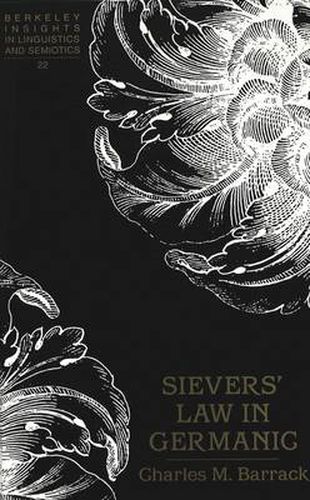Readings Newsletter
Become a Readings Member to make your shopping experience even easier.
Sign in or sign up for free!
You’re not far away from qualifying for FREE standard shipping within Australia
You’ve qualified for FREE standard shipping within Australia
The cart is loading…






One of the most interesting changes in Proto-Germanic was the alternation of y and w after short syllables with i and u after long, respectively - an alternation with far-reaching effects. Described by Eduard Sievers in 1878, this law has been the subject of controversy ever since. Is it related to a similar phenomenon in Vedic Sanskrit, and was it, therefore, Indo-European in origin? What is its relationship to alliterative verse in Germanic? This study addresses such questions and demonstrates that Sievers’ Law has played a wider role in Old English than heretofore demonstrated.
$9.00 standard shipping within Australia
FREE standard shipping within Australia for orders over $100.00
Express & International shipping calculated at checkout
One of the most interesting changes in Proto-Germanic was the alternation of y and w after short syllables with i and u after long, respectively - an alternation with far-reaching effects. Described by Eduard Sievers in 1878, this law has been the subject of controversy ever since. Is it related to a similar phenomenon in Vedic Sanskrit, and was it, therefore, Indo-European in origin? What is its relationship to alliterative verse in Germanic? This study addresses such questions and demonstrates that Sievers’ Law has played a wider role in Old English than heretofore demonstrated.